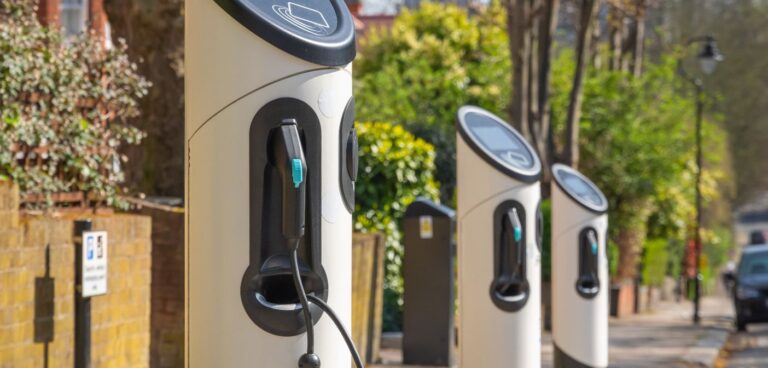According to new research from energy supplier British Gas, more than 16,500 electric vehicle (EV) chargepoints are set to be installed over the next 12 months across the UK.
If these plans are followed through, this would mean the UK public charging network would essentially double by 2023.
The report is based on research conducted by the company through a Freedom of Information (FOI) request to more than 400 UK local authorities.
Of the 400 contacted, 195 reportedly responded, indicating plans to install 16,563 EV chargepoints over the next year. Currently, there are 16,680 public chargers owned by local authorities in the UK.
The information request revealed that London should see the largest number chargepoints installed, seeing an 101% increase from 7,848 to 15,753. In second place was the East of England, which saw a larger percentage increase of 131%, but overall is set to grow from 974 to 2,254 public chargers. The North-West followed with a 450% increase from 375 to 2,064, the South-West with a 172% increase from 533 to 1,455 and Wales with a 101% increase from 394 to 793.
Smaller regions were also highlighted in the research, which revealed that councils in the South-East would see a 98% increase to 3,345 points.
What’s more, Yorkshire is expected to install 94% more chargers and hit more than 900. The North-East is predicted to increase chargepoints by 83% to nearly 800, the Midlands by 67% to almost 3,000 and Scotland by 40% to slightly more than 3,000.
Conversely, the published data also revealed that 24 local authorities do not plan to install any new chargers during the next year, with the majority of these councils reportedly being outside of London and the South-East.
Kim Royds, director of EVs at British Gas, said: “Electrifying the UK’s transport systems is a key component of its journey to net zero, and universal adoption of EVs will only be possible if the charging capacity is there to support it.
“It’s incredibly encouraging to see council investment in public charging infrastructure gather momentum.
“Local councils have an important role to play in expanding the UK’s EV charging infrastructure, giving drivers access to publicly available charge points in every town and city in the UK.
“Of course, alongside this we will need investment in home charging too in order to ensure that we create a robust charging network that enables everyone to benefit from an electric future.”
The named 24 councils with no EV chargepoints planned were: East Cambridgeshire; Lancaster; East Hampshire; Havant; Lancashire; Surrey Heath; Melton; Erewash; Central Bedfordshire; Maidstone; Calderdale; Knowsley; Peterborough; Dartford; Somerset West and Taunton; Midlothian; Lincoln; Orkney; Test Valley; Fenland; Mid Ulster; City of London; Ribble Valley; and Bolsover.
To support the delivery of improved EV charging infrastructure, the UK government recently established the Local EV Infrastructure (LEVI) trial initiative, through which nine councils are set to receive a portion of £20m.





